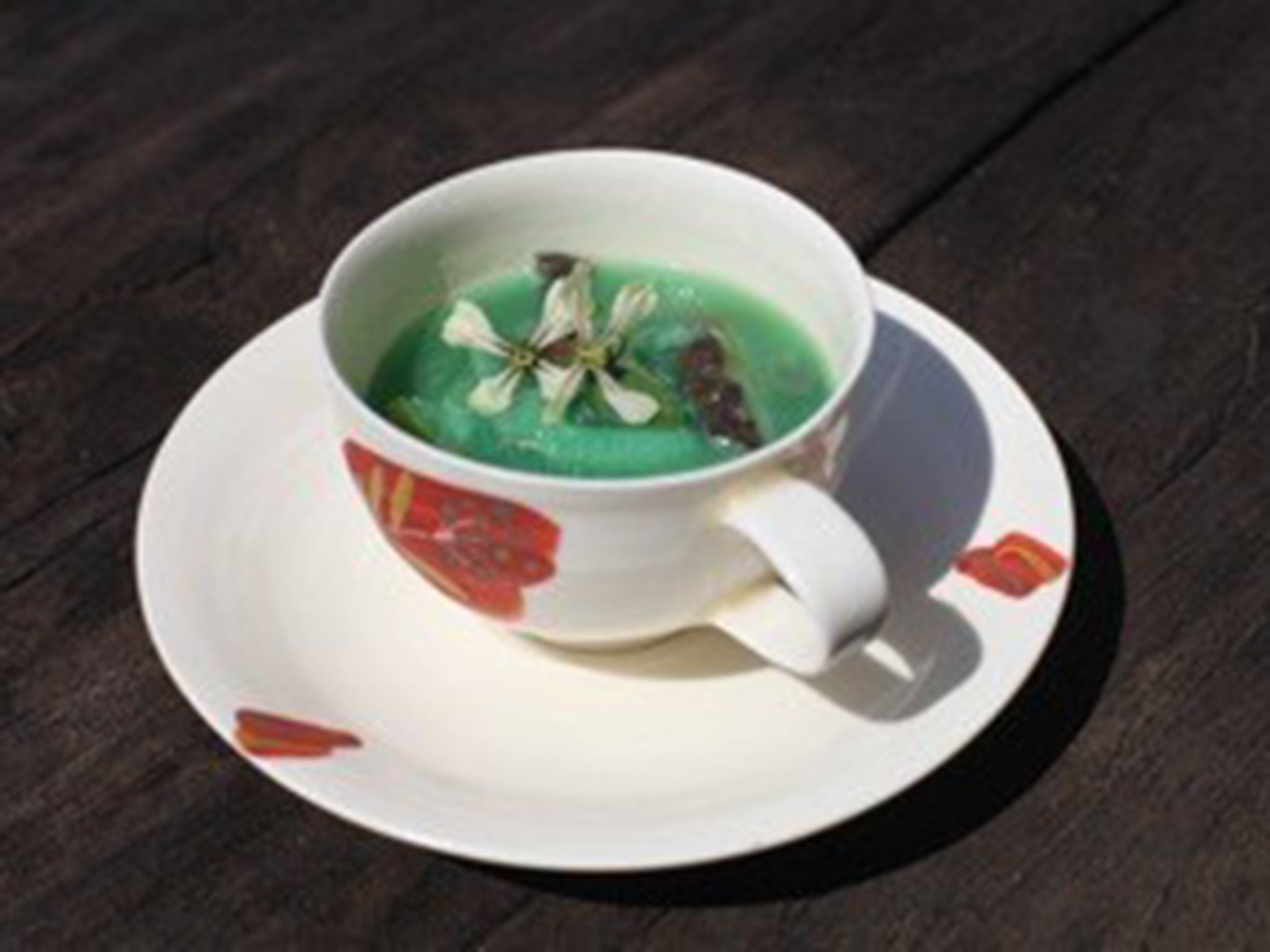Japanese conceptual artists to offer soup made from Fukushima vegetables at Frieze Art Fair
United Brothers insist soup is safe to eat

Your support helps us to tell the story
From reproductive rights to climate change to Big Tech, The Independent is on the ground when the story is developing. Whether it's investigating the financials of Elon Musk's pro-Trump PAC or producing our latest documentary, 'The A Word', which shines a light on the American women fighting for reproductive rights, we know how important it is to parse out the facts from the messaging.
At such a critical moment in US history, we need reporters on the ground. Your donation allows us to keep sending journalists to speak to both sides of the story.
The Independent is trusted by Americans across the entire political spectrum. And unlike many other quality news outlets, we choose not to lock Americans out of our reporting and analysis with paywalls. We believe quality journalism should be available to everyone, paid for by those who can afford it.
Your support makes all the difference.Would you eat soup made from radioactive vegetables? And if you did, would it be art?
These are some of the questions that will be asked - and perhaps answered - at this year’s Frieze Art Fair in London, as two Japanese artists offer visitors that chance to enjoy a broth made from ingredients sourced from Fukushima.
The artists, known as United Brothers, are making the soup as part of the performance art piece Does This Soup Taste Ambivalent? in solidarity with those affected by the Japanese nuclear disaster in 2011.
Ei Arakawa, an established Japanese contemporary artist, and his brother Tomoo, who ran a chain of tanning salons, have assured Frieze organisers that the soup is safe to eat. They say the vegetables have been cleared by the Japanese Farmers’ Association.
The pair, who are from Iwaki in Fukushima, will fly their mother over from Japan to make the noodle soup each day during the fair.
Its main ingredient, the daikon radish, was grown in Fukushima, near where a devastating earthquake and tsunami damaged the nuclear power plant, resulting in three of the reactors melting down causing nuclear material to seep out. The soup will be given out free.
“The gift of food represents the essence of hospitality, sharing and humanity,” explains the Frieze catalogue. “However, the soup United Brothers offer is laced with the (conceptual) possibility that it may be radioactive”.
Frieze director Matthew Slotover said: “They are flying in vegetables. They’ve been tested, they’re safe, but there’s clearly a psychological barrier.”
He continued: “It’s one of those projects where you don’t know if there is going to be a huge queue or whether no one is going to go near it.”
The “radioactive” soup is part of the 12th Frieze Art Fair in London, which involves 160 contemporary art galleries, and its sister fair Frieze Masters, which concentrates on historical art. They open in Regent’s Park on October. Other notable works this year will include the Hauser & Wirth stand, where Turner Prize-winner Mark Wallinger will recreate Sigmund Freud’s London study.
Artist Jonathan Berger is making a work inspired by Andy Kaufman, which will involve materials owned by the US comic, as well as friends and family who will talk to visitors.
Mr Slotover, who founded the fair with Amanda Sharp, announced the pair was to step down as directors next year. They will be replaced by Victoria Siddall, who set up the successful Frieze Masters.
“She is exceptional,” Mr Slotover said. “She will be busy but she will have support.”
Join our commenting forum
Join thought-provoking conversations, follow other Independent readers and see their replies
Comments